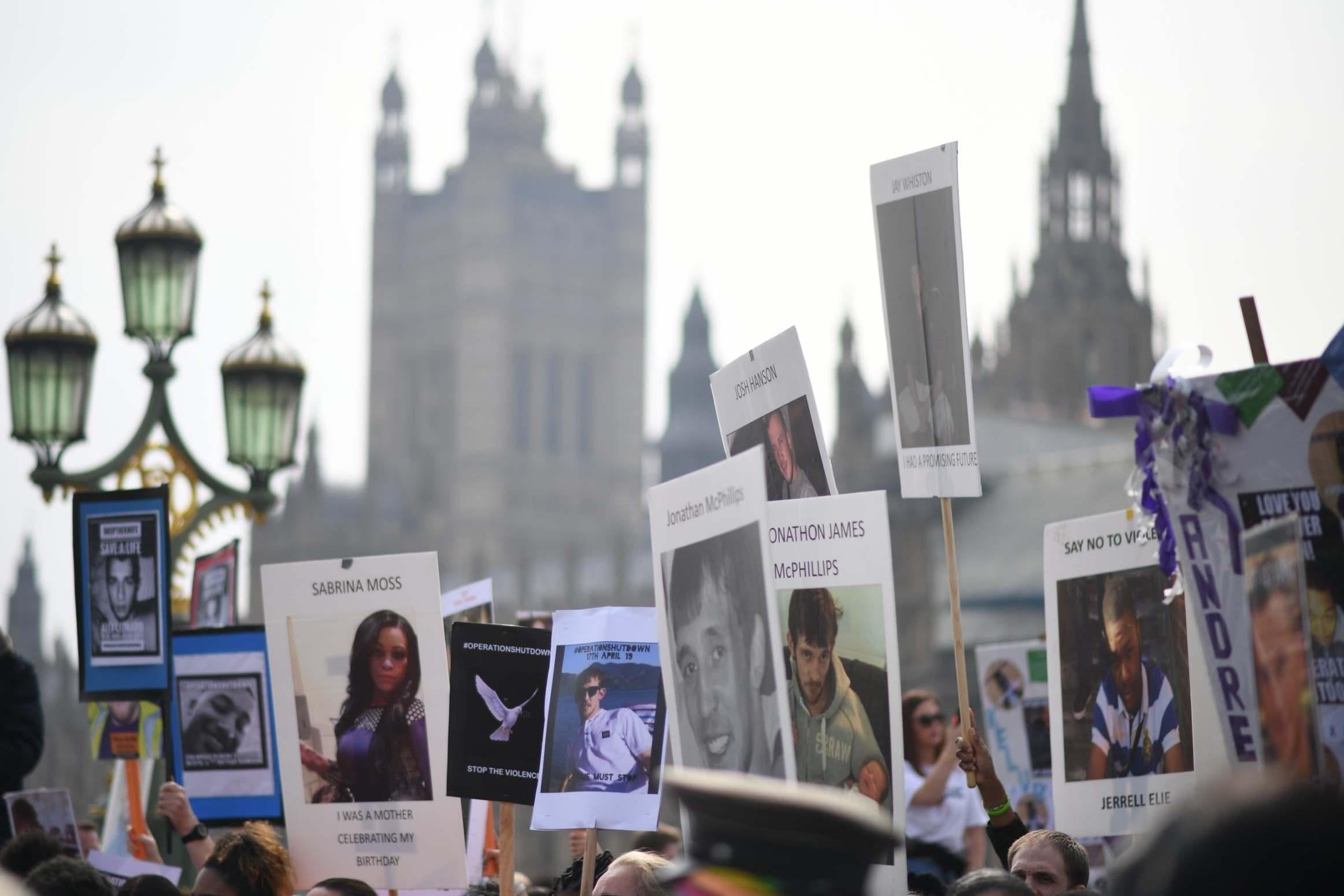Tory cuts to ‘life-saving’ public services driving knife crime among young people, major report finds
Lizzie Dearden writes that young people are increasingly drawn into violence because support has been reduced or removed, according to parliament’s Youth Select Committee

Budget cuts to “life-saving” public services are driving an epidemic of stabbings and violence among young people, a report has found.
Parliament’s Youth Select Committee, which includes teenagers aged 16 to 18, said inequality and poor opportunities were making children vulnerable to being drawn into gangs.
“Cuts to important and arguably life-saving services such as community police officers, youth community groups, health and education services means that the support previously in place for vulnerable young people has been weakened or in some cases completely removed,” the committee concluded.
“We believe that this is a fundamental cause of the rise in violent crime, including knife crime, amongst young people.”
According to the report, the 285 fatal stabbings in England and Wales in the year ending March 2018 was the highest since records began in 1946.
The report said the scale of the problem means many young people feel “so afraid” they believe “carrying a knife is the only way to prevent themselves being stabbed”.
It referenced research by the All-Party Parliamentary Group on Knife Crime that suggested areas with the largest cuts to youth services had seen bigger increases in violence.
And a £51m package of measures in the government’s Serious Violence Strategy amounted to “around an eighth of the total cuts to youth services since 2010”, the committee was told.
The report said that current policies only remedy the symptoms, rather than causes, of youth violence and that the committee was “not convinced” of the government’s commitment to fighting poverty and inequality of opportunity.
It said young people with mental health issues, adverse childhood experiences like domestic abuse and addiction, have learning difficulties, live in poverty or are excluded from school are more vulnerable to involvement in knife crime.
The committee took aim at ministers who have blamed drill music for rising violence and supported police and social media crackdowns, writing: “Rather than penalising young people, an effort should be made to understand the often violent reality which is depicted in music and address it.”
The report called on the government to help parents to spot warning signs, and to consider restorative justice role models beyond the “narrow and stereotypical” examples of rappers and athletes.
It said an extension of stop and search powers should be rolled back until the “disproportionate” targeting of black males was addressed, while short custodial sentences for carrying knives and school exclusions should be “an absolute last resort”.
Rachel Ojo, chair of the Youth Select Committee, said it was concerned by the “increasingly punitive approach to tackling knife crime”.
“If the government wishes to confront the fundamental causes of the rise in violent crime amongst young people, it must do more to address and improve the difficult circumstances many young people are facing,” she added.
The report, which called knife crime an “epidemic” for Britain’s young people, followed a UK-wide ballot of more than 1 million 11- to 18-year-olds where they named it their biggest concern.
A government spokesperson said it was “taking urgent action to tackle the scourge of serious violence”.
“We are making our communities safer by recruiting 20,000 extra police officers over the next three years, and are investing in Violence Reduction Units and early intervention projects to steer young people away from knife crime,” a statement added.
“We are also changing the law so that police, councils and health authorities are legally required to work together to prevent and tackle serious violence.”